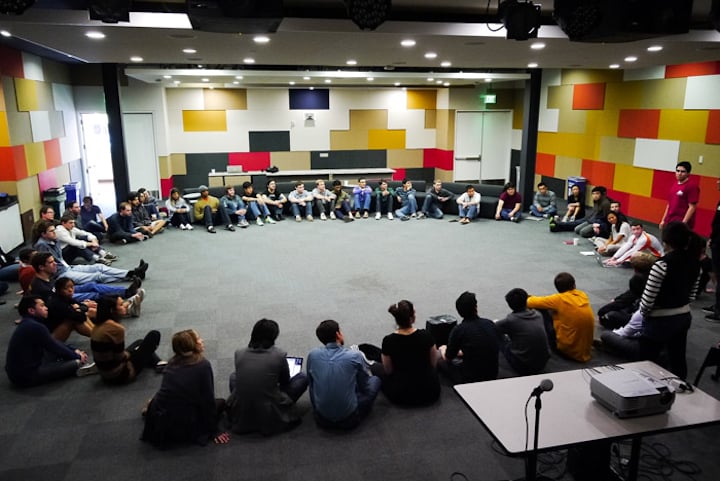StartX, a Stanford-based startup accelerator and entrepreneur network, received an $800,000 grant from the Kauffman Foundation this August to expand. Most of the money will be allocated to current programming in Palo Alto, but StartX will also be looking to replicate its program in other parts of the country.

The Kauffman Foundation, a Kansas City-based organization that allocates money to entrepreneurship and education programs nationwide, has an asset base of $2 billion and provided $55 million in grants last year. The foundation’s staff visited StartX’s Palo Alto office on a recommendation from a StartX program mentor, and they came away impressed.
“I think that the team that is working on StartX right now is tremendous,” said Wendy Torrance, an entrepreneurship director at the Kauffman Foundation. “They have a lot of energy, are incredibly smart and have developed a very interesting model for founder education.”
StartX founder Cameron Teitelman ’10 pointed to specifics in the StartX model that impressed Kauffman representatives.
“Most [startup accelerators] charge 6 to 10 percent equity of your company,” he said, while StartX currently takes no equity from companies it assists.
“We showed them our methodology, how we operate, how we educate founders, how we do it with mostly a team of Stanford students and the results that we are getting. They were kind of blown away.”
In fall 2011, StartX submitted a grant proposal to the Kauffman Foundation asking for $740,000 in funding. The foundation announced the approval of the grant, adding an extra $60,000 for hiring a documentation employee.
“StartX has developed a terrific founder’s education program,” Torrance said. “I see in them great potential to strengthen that program and bring their model to other locations around the country.”
Some of the grant will be spent on investigating ways to expand StartX nationally, though Teitelman said that a large portion of the grant will provide financial support for companies in StartX’s existing program, which runs three times a year.
“Basically, the point of the grant is to explore how we want to replicate, whether that means building programs with other universities or just giving people our material,” he said. “We have some milestones with [Kauffman] that we have set, but things aren’t too strict. It’s more that we figure out how to make our model have a more expansive impact.”
The grant has allowed for more support for StartX Med, a new division of the company that focuses on work with medical and biotech startups. StartX Med founder Divya Nag ’13 said the program reflects StartX’s desire to offer education and assistance to a wider variety of startups.
“Going forward, StartX wants to establish itself as a place that can support any type of entrepreneur,” she said.
Sam Purtill ’13, who went through the StartX program with his company ClassOwl in the summer of 2011, believes the foundation’s grant will go to a worthwhile program that helps Stanford entrepreneurs take the next step.
“Companies that have raised money in StartX…are being talked about inside venture capital firms, which is really all that matters,” he said.
